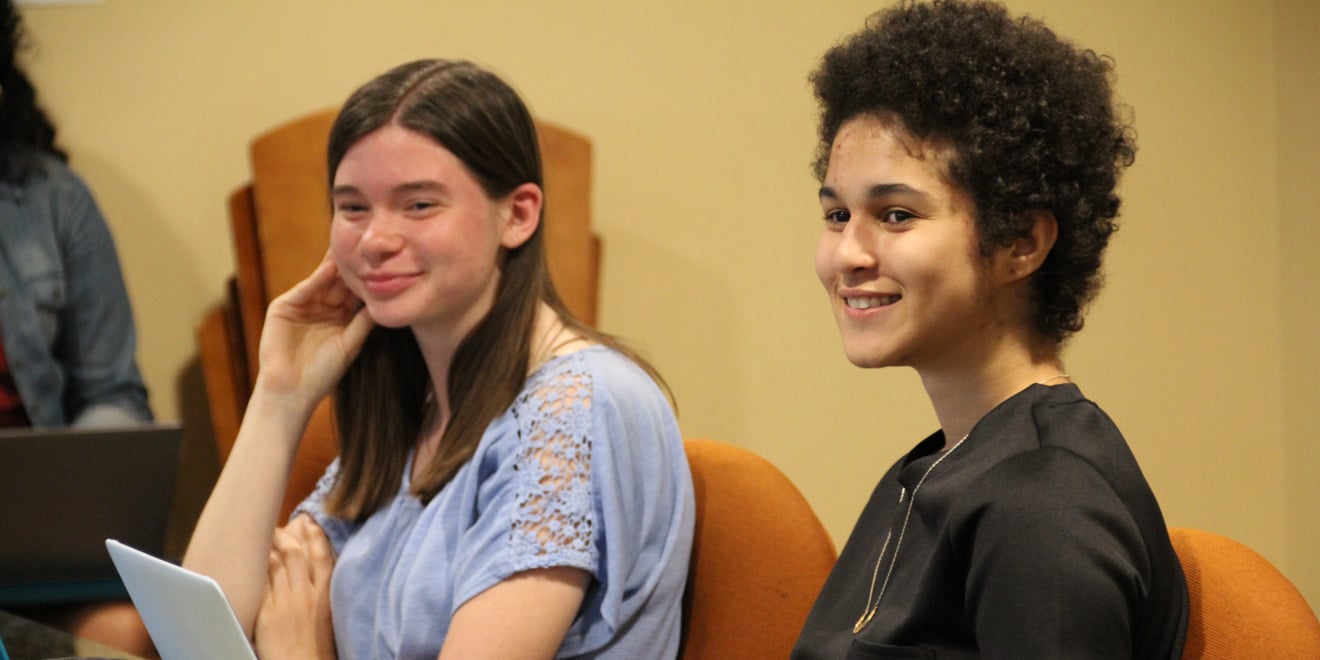In its fifth meeting on Tuesday night, the 19th Undergraduate Senate shortened a discussion with Counseling and Psychiatric Services (CAPS) director Ron Albucher from 25 minutes to eight minutes in a move that several senators and other ASSU leaders questioned.

Following the discussion with Albucher, the Senate deliberated on eight pieces of legislation. A bill broadly reforming conflict-of-interest policy within the Senate passed, as did a bill to create a committee aimed at revising Constitutional Council operations. Senators also tabled a bill to help students access textbooks through a lending library.
“This Senate has a lot of enthusiasm and energy to work on initiatives the student body cares about,” ASSU executive Justice Tention ‘18 said. “They also have an extreme attention to detail and scrutiny towards governing documents. I think they are still finding the balance between devoting time to reviewing these documents and focusing on their own initiatives. But I have no doubt they will find that balance in the fall and focus their efforts on the goals they set out during campaign.”
CAPS discussion
In his shortened time in conversation with the Senate, Albucher addressed wait times for CAPS appointments, satellite CAPS locations around campus and representation of minority communities among therapists employed by CAPS. He also spoke on Stanford’s search for a new CAPS director, as Albucher plans to step down into a part-time clinician position on Sept. 1.
Albucher said that CAPS is currently looking to hire psychologists who have additional experience serving Muslim, international, African-American and Asian-American communities.
CAPS serves 2,500 to 2,800 students per year, according to Albucher. Given the extensive demand the organization faces, CAPS often refers students to long-term care after a brief evaluation or several appointments. Albucher said that despite CAPS’ high volume of patients, students do not face a firm limit of appointments.
Albucher had hoped to launch an initiative to provide intermediate-length treatment – something between the short-term therapy CAPS provides and the long-term therapy beyond Stanford resources – at Kingscote Gardens, a building near the Faculty Club that starting next year will house a satellite CAPs office. However, he said, the intermediate care initiative did not come together this year and is still in early planning.
Senator Lizzie Ford ’20, who coordinated Albucher’s visit, plans to connect her work on the Senate with CAPS through multiple avenues – most importantly, by passing a resolution that pushes the University to create long-term, on-campus psychological care for students.
“[Such a resolution] would motion to the Board of Trustees and the president that this is something that the students are really concerned about,” she said.
Ford also plans to work on a task force that Albucher has created to push for such care.
Ford met with Albucher prior to his visit to go over what senators might ask in the meeting. Ford said that Albucher structured his talk based on the knowledge that he would have 25 to 30 minutes in conversation with Senators.
“Though Dr. Albucher showed up on time, Kojoh [Atta ’20] and Remy [Gordon ’20] told me that he would have only eight minutes to talk,” she said. “I felt uncomfortable with this, just because Dr. Albucher had taken time out of his very busy schedule to come talk to us. There was a lot to be gained from having a longer talk with him.”
Tention said the Senate should prioritize substantive student issues over bureaucratic procedures during meeting times.
“As appropriations chair, I could spend hours preparing for bills to bring to you that would then be two minutes worth of discussion, because so much had been vetted beforehand,” Tention said, addressing the Senate at the end of the meeting. “I think that expectation only existed for that particular role, but if you were to apply that to other roles, you could be very effective in allocating long lengths of discussion for issues students actually care about, and then very quickly get through bureaucratic procedures to have an ASSU.”
Senate Chair Atta argued that a miscommunication about Albucher’s planned arrival time at the meeting contributed to logistical challenges around the visit. He also asserted that Albucher’s discussion took up 10 minutes rather than eight.
Other legislation
The Fair Senate Bill, authored by Senator Chapman Caddell ’20, passed, with all senators voting in favor of it with the exception of Atta, who opposed it, and Ana Carolina Queiroz ‘20, who abstained. The bill reforms processes to resolve conflict-of-interest disputes. Under the Fair Senate Bill, Senators must publicly disclose their on-campus affiliations.
Additionally, the Administration and Rules Committee must review all proposed legislation prior to the Senate’s vote to confirm that the bill complies with the Senate’s governing documents, though the committee does not have authority to prevent a vote on a bill.
Furthermore, the bill states that Appropriations Committee chairs are ineligible to hold Financial Officer positions for student organizations.
Though the Senate deliberated on the bill for 20 minutes before putting it to a vote, Caddell held that its purpose and text should be uncontroversial.
“This is the single-most significant reform passed on the issue of conflicts of interests in the history of the Undergraduate Senate,” he said. “I think that’s a big accomplishment, and I’m proud to say I was a part of that. We were able to show that the current Undergraduate Senate is committed to issues of accountability and transparency.”
All but three senators voted in favor of a motion to create an ASSU joint legislative committee intended to revise rules governing the Constitutional Council, the body responsible for interpreting the ASSU’s constitution. Early this quarter, following tensions between senators and Council members over a Constitutional Council case that the Senate lost, senators, ASSU executives and Council members all met and agreed to work on reviewing procedures.
With three abstentions, the Senate approved a bill affirming earlier plans to create a “student voice website” for the ASSU, which would allow Stanford students to anonymously discuss suggestions for the Senate.
Funding
With two abstentions, the Senate passed a bill to allocate money from its discretionary fund toward various Senate expenses such as food for meetings, ASSU clothing, a Senate retreat and an end-of-spring-quarter event to help ASSU members meet each other and de-stress. The allocations total $6,500.
The Senate also tabled a bill, authored by senators Cole McFaul ’20 and Lizzie Ford ’20, to establish a “lending library.” Noting that many undergraduate students struggle to buy their course materials each quarter and pay on average $1,455 per year on textbooks, the resolution asks the Senate to transfer $10,000 from its discretionary fund to the Diversity and First-Gen (DGen) Office in order to set up a textbook library located in the DGen Office. The lending library would solicit textbook donations from the Stanford community as well as use funds to buy books used in classes with enrollments of over 70 students.
Calling the bill still in flux, McFaul said he would continuing working on the initiative over the summer.
The Senate also confirmed two senators’ committee reassignments and appointed Paul Serrato ’19 as Elections Commissioner for the 2017-18 election cycle.
Contact Courtney Douglas at ccd4 ‘at’ stanford.edu.
